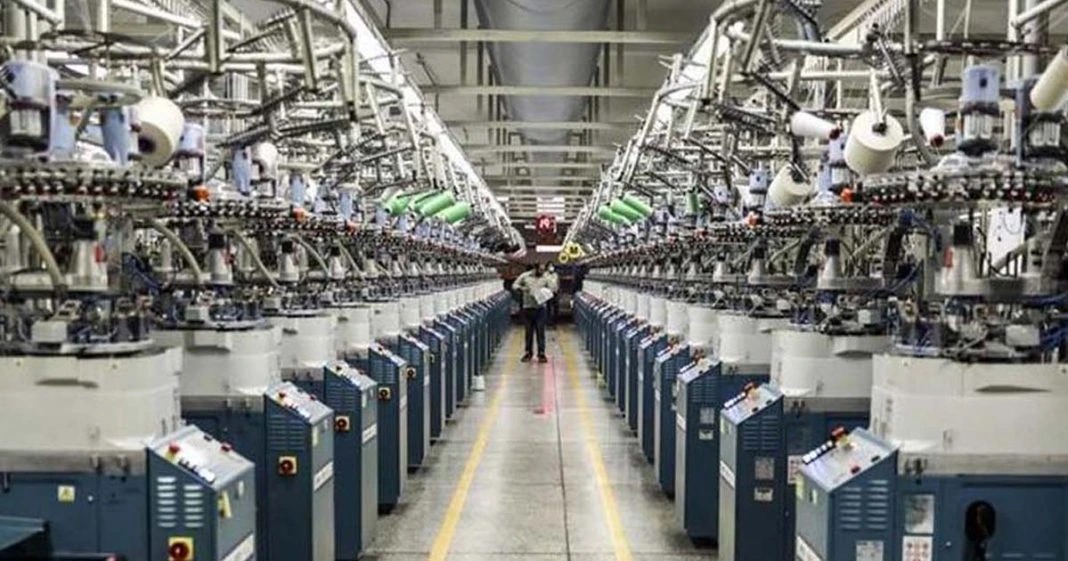ISLAMABAD: The industries in Pakistan will have to increase their productivity, improve the quality of their products and adopt innovative ways to compete with their rivals in the international market, according to experts.
They told WealthPK that it is very important for industries to increase productivity in the present competitive business environment. They said that industries would have to improve the quality of their products and bring innovation in their operations to capture a better share in the local and international markets.
Muhammad Mugheez Farooq, energy auditor at National Productivity Organisation (NPO), told WealthPK that for decades, Pakistan’s economy struggled with low productivity and suffered from a lack of competitiveness and inefficiency.
“Every sector including agriculture, manufacturing, trade, education, and other services is being impacted by this problem, which has affected the overall output. It is essential to maintain sustainable productivity if we are to achieve competitiveness and the targets of Gross Domestic Product growth,” he said.
He stated that a strong economy is characterised by productivity, quality and innovation. “These are the three pillars of competitiveness and economic growth,” he added.
Muhammad Mugheez said that NPO, under the umbrella of the Ministry of Industries and Production, was working as a liaison office of the Asian Productivity Organisation (APO), based in Tokyo, Japan to promote the idea of productivity, quality, and innovation among industries.
APO has 21 member countries with the recent accession of Türkiye. Pakistan is among the eight founding member countries of the APO.
“We have made some real efforts to achieve our target with a more focused approach. The main objective is to enhance total factor productivity (TFP) through human resource development (HRD), technology demonstration, and improved practices, processes, and procedures in the country so as to support the cause of competing effectively in the local and global markets,” said Muhammad Mugheez.
He said that NPO was also developing a key initiative through which the organisation and its stakeholders would continue to reap benefits in the coming years that included launching Rs77 million productivity movement in Pakistan through the PSDP-approved project “Improving Competitiveness through Sustainable National Productivity (SNP)”.
“In order to increase productivity and competitiveness, we have also devised a policy in which key performance indicators will be assessed and monitored in every aspect. These indicators will show how much water, energy and other resources are conserved and efficiently used so that we can launch incentives based on these parameters,” he said.
Muhammad Mugheez said Pakistan’s slow growth rates of output could be attributed to a lack of innovation, low investment, technology inefficiencies and limited research and development.
“To achieve industrial growth, we must optimise our productivity tools including our human resources, technology and processes of various industrial value chains. The intended outcome is to enhance our trade with the rest of the world,” he said.
Muhammad Mugheez stressed the need for professional training and awareness to produce skilled manpower according to the requirements of the labour market in the country and contribute to the growth of industries. “The private sector should be encouraged to expand its involvement in skills training,” he added.
Muhammad Alamgir Chaudhry, the chief executive of NPO, told WealthPK that his organisation was going to launch a structured productivity movement in Pakistan to position it as a competitive market through enhanced productivity.
“Pakistan has made a strong commitment to improving the economic landscape through sustainable development approaches. A number of measures such as increasing business competitiveness, facilitating investment, fostering value addition, promoting exports and substituting imports might be taken to achieve it,” he said.
Federal Minister for Planning, Development and Reforms Prof Ahsan Iqbal has recently stated that Vision 2025 is Pakistan’s long-term development blueprint that aims to create a globally competitive, prosperous country and provide a high-quality life to its citizens.
According to him, the country is focusing on increasing exports to improve national productivity and its share in the global market.






